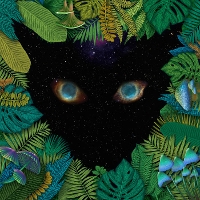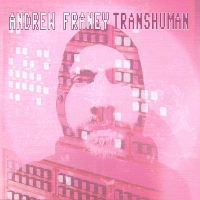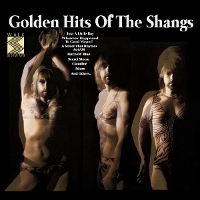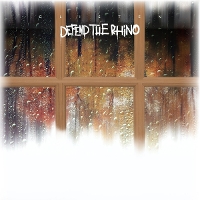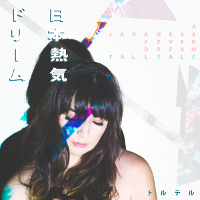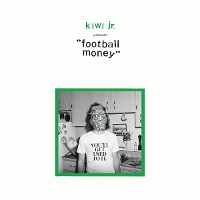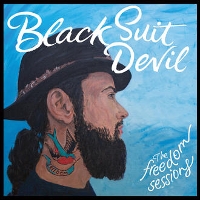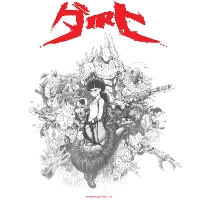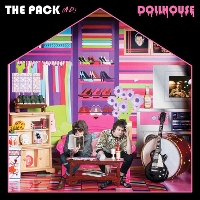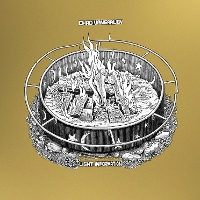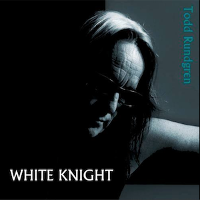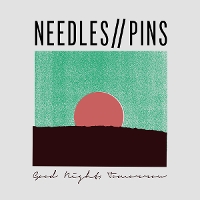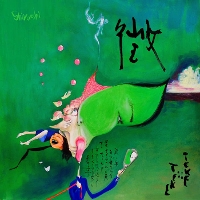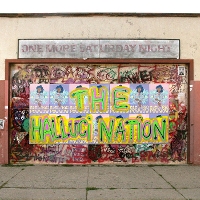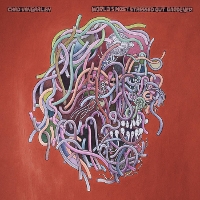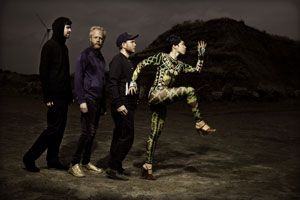
Little Dragon march into the future
Little Dragon: Meeting the Gentle Beast
Little Dragon Talk About Swedish Metal Bands, Pitchfork and Evolutionary Psychology
I guarantee you that if you have been hanging out in a cool lounge, an elite hair salon, a trendy retail establishment, or in a bar where the DJ loves chilled-out electronic music—sometime in 2010—then you have probably already heard of Sweden’s best kept secret, Little Dragon. BTW: Their song “Twice” was also placed on TV’s hit doctor show, Grey’s Anatomy. They are one of those cool undiscovered bands, bubbling just under everyone’s radar.
So naturally, I had to find out all about these mystery men. The last time the band was in town, I set off for the Biltmore for a little chat. As it turns out, Little Dragon is made up of four Swedes, one woman and three guys with beards: Yukimi Nagano (the lone female, vocals), Erik Bodin (drums), Fredrik Källgren Wallin (bass) and Håkan Wirenstrand (keys).
As I set up my recording equipment, the band breaks out into Swedish conversation, as they will do periodically throughout this interview. English is not the strongest suit of some in the band, but all want to participate. So this interview becomes a bit of a free-for-all. Reading this in text doesn’t really do it justice. But I have done my best, dear readers!
Scott Wood: You guys have been together since high school. Who has changed the most since then?
 We're actually not that good at that. We've tried-like maybe if we just did this one commercial thing then... Asking our manager to get us something, when we really need money, "What can we do that has to do with music that actually could pay off?"
We're actually not that good at that. We've tried-like maybe if we just did this one commercial thing then... Asking our manager to get us something, when we really need money, "What can we do that has to do with music that actually could pay off?"

Yukimi: I think we have all changed.
Erik: Yeah.
Håkan: Yeah.
Yukimi: We’ve been lucky. Some friends that I had in high school, you sort of grow apart from. We are lucky to have changed together. [She looks at the rest of the band.] There’s been some drastic inner growth, maybe?
They all giggle.
Fredrik: I remember when we first started to play with Yukimi, she was very shy. Very—
Yukimi: Yeah.
Erik: —Gothic.
Fredrik: —Gothic maybe.
Yukimi laughs.
Fredrik: You didn’t move much. You didn’t say much, but now she’s a full grown entertainer.
Håkan: Yes, that’s very true.
Scott Wood: Yes, Yukimi, you have a lot of fans and one website today called you an “indie goddess.” I wanted to get your reaction to that and then ask the guys for a tidbit about you that makes you sound down-to-earth.
Yukimi: I think that’s a great compliment. I am honoured. I don’t know what say—
Fredrik: She is down to earth. She is aware of food and poisons, and how the food industry—
Erik: —Sucks!
Fredrik: —Sucks, in some ways, and she is a good cook. And I think she has seen different parts of the music industry and kind of knows that music is the most important thing—
Yukimi: Made many mistakes basically.
They all giggle together again.
Erik: She has done all the mistakes for us.
They all laugh ‘yes’ and then say ‘no’.
Yukimi: Yeah, kind of.
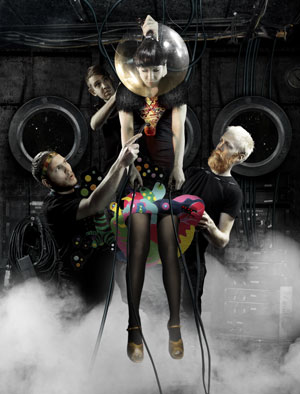
Erik: Yeah, you are good at appreciating the small things.
He trails off and nobody will say anything else, but they giggle again.
Scott Wood: You guys are all so shy and nice, but I would love it if you could let loose! The last time Yukimi cooked for you, what did she cook?
Erik: Oh! She cooked—uhm. What did you cook?
Yukimi: We’ve been on tour so long, I can hardly remember what I made the last time I made food. It’s been a while, but usually we’re in the studio—
Fredrik: —Soup in the studio.
Everyone agrees. Soup. In the studio.
Yukimi: Like usually, we have some ingredients in the studio and it’s kind of about making something with nothing. And trying to hold down costs and stuff. To make a lot of food for a lot of people and having it cost as little as possible, so I think that’s fun because you can get really creative and stuff so—I have no idea what I made last time. Probably some—
Fredrik: Soup.
Yukimi: —Soup!
Scott Wood: Ok. A lot of your interviews talk about having no money and being an artist. As a band, when was the last time you guys had to come together to solve this kind of problem?
Erik: To get money, you mean?
 I was completely scared of it, at first. I thought, "Oooooooh. This is like a crack in a neon tunnel" and I was really freaking out. And then I started to love it. And then I put some drums on it.
I was completely scared of it, at first. I thought, "Oooooooh. This is like a crack in a neon tunnel" and I was really freaking out. And then I started to love it. And then I put some drums on it.
Scott Wood: Well, I’ve seen a lot of interviews where you guys talk about making financial sacrifices for what you do. So I was wondering what happened the last time as a band you had to get creative to solve a problem like this.
There is a pause.
Yukimi: We’re actually not that good at that. We’ve tried—like maybe if we just did this one commercial thing then... Asking our manager to get us something, when we really need money, “What can we do that has to do with music that actually could pay off? I don’t know, it’s been kind of—
Håkan: Flying up and down the coast.
Fredrik: I know one thing... When you travel, the airlines have these restrictions on how many kilos, so we have kind of built our own cases, lightweight, made of fibreglass.
Håkan: Oh that’s true.
Fredrik: We looked up how you built the canoe to make the case, instead of the canoe.
Some of them laugh.
Fredrik: Because it’s really lightweight, protective and stuff. And if you are gonna buy it, it is super expensive, but it’s pretty good to travel in.
Yukimi: And you can fool the guys on Ryanair [a European Airline] and tell them that it is a projector or something, because it costs extra if it is musical instruments.
Scott: Oh, really?
Yukimi: We will do anything. Ryanair—
Erik: —They don’t get any appreciation from us!
Scott Wood: You guys are from Gothenberg, Sweden and the music scene there is known more for its heavy metal music than its electronic indie pop. Is the scene that small where you can hang out with those types of dudes?
Erik: That we hang out with the heavy metal guys?
Scott Wood: Yeah.
Yukimi laughs.
Erik: No! Unfortunately, no! I think it would be great to. Now and then we see them at the airport, going to Japan or something.
Fredrik: I actually have a fun story. I met my old schoolmate, like from middle school, I don’t know what the name is, 7, 8th grade or something. I haven’t seen him since then, and he has always been a heavy metal guy, and it turns out he was in a huge Gothenberg metal band touring the States. And I had never heard of their band either, so it’s strange probably.
Erik: Yeah, that’s the thing. In Gothenberg, people are isolated very easily. So we kind of miss out on everything. Everyone misses out on everything.
Fredrik: And most of the media is very mainstream and very pop music. So it’s hard to—
Yukimi: Keep up.
Fredrik: —Keep up with what’s happening.
Scott Wood: I would love to talk about your songwriting process. I have read that the guys write the music and hand it off to Yukimi with visuals to write the lyrics. Is this how it works?
Yukimi: Uhm, not necessarily give me visuals but I get visuals from their music, and it’s pretty direct. Yeah, we make everything pretty spontaneously, it’s not so planned. We make a bunch of ideas and keep the ones that feel solid and finish them. So, that’s pretty much how we work: make a lot and pick out the good stuff.
Scott Wood: Cool. Can you guys talk about writing for the current album?
Yukimi: Yeah. We have a bunch of ideas that we started out and we’re gonna make a bunch more and see which ones we choose in the end, but we just wanna make a lot of material before we decide which songs we’re gonna choose.
Håkan: Yeah. We are three guys with our own set up, each of us. It usually starts at somebody’s computer and then, before it’s ready, everyone needs to put their spice to it. We are at the position, before we put the salt and the pepper and the spice. We have a lot of ideas, but they need to be flavoured, I think.
Scott Wood: [The band obviously thought I was asking about their next (as of yet unreleased) album, which they are writing now, when I was actually asking about their current release, Machine Dreams.] Ok, if the guys are writing the music, can you take a song off, Machine Dreams, and talk about how you made it?
Erik: Yeah, sure. We can talk about “A New,” the first one, for example. That was Hakan and Yukimi—and I was completely scared of it, at first. I thought, “Oooooooh. This is like a crack in a neon tunnel” and I was really freaking out. And then I started to love it. And then I put some drums on it.
Håkan: [laughing] And I took away some drums.
 I think the ambition is to make something that feels new for us, somehow-even if it's reminiscent of other music. For us, it is important to have the goal to make something that feels interesting and inspiring.
I think the ambition is to make something that feels new for us, somehow-even if it's reminiscent of other music. For us, it is important to have the goal to make something that feels interesting and inspiring.
Erik: Yeah, Hakan took away some drums. It is usually one who is the kind of conductor, or whatever you say, and he stays behind the wheels and make the decisions—which is good—because I think it would be boring, if it were always democratic, you know?—
Everyone tries to interrupt with laughter and something to say.
Erik: We try to be democratic!
Fredrik: Sometimes it’s very democratic, but sometimes we get into huge arguments for several days, divided on like different sounds.
Scott Wood: I am not trying to delve into the negative but I would love to hear about one of those songs that caused problems between you guys.
Erik: Most of them aren’t even on the record, I think. Which one would that be?
Yukimi: We’ve definitely had a lot of arguments about when we sit and listen to a bunch of songs and decide which ones are gonna be on the album. Some of us will like certain songs more than others. It will be like, “This one has to be on the album!” And someone will be like, “This one should definitely not be! This one is much better than that one.” Usually the ones we’re 100% sure of, we all are kind of sure on, but—
Håkan: There is always something.
Everyone tries to speak again.
Håkan: It is always depressingly easy to pick the songs, but maybe while doing them there can be a lot of arguing. Arguments back and forth about how it should be, what is good or bad.
Yukimi: Everyone has to get over little humps of pride. I don’t know, sometimes it takes a couple of days to realise that maybe someone’s idea was a good idea.
Erik: I take it back. I think that’s nice when it doesn’t become so democratic. It would be easier if someone just dictated, “This is the way it’s gonna be!” or whatever, to get rid of the arguments, but that is only me.
Two of the guys laugh.
Erik: Maybe you guys wanna fight! And I want to be the leader.
Fredrik: It’s easy for the dictator maybe.
Håkan: Of course it’s easier if one—are we having an argument?
More laughter.
Håkan: You don’t have to argue every issue. Everything?
Scott Wood: I don’t think argument is necessarily a bad thing. A lot of good things come from conflict.
Fredrik: Yeah, sure.
Erik:Yeah!
Yukimi: It’s easy for us to get into conflicts. I think with time we’ve tried to learn to deal with conflicts better than what we used to. Yeah, it’s good but when it gets too explosive, then it can become really draining, if it’s that way all the time.
Scott Wood: Since the guys do the music and you come back to them with the lyrics, has there ever been a time when they have asked you, “Wow, what’s going on there?” Not in a bad way, but in a “Wow, we didn’t see that coming” way?
Yukimi: Yeah, there have been a few times where I have wrote some lyrics and recorded it and the guys would think that I was singing something else than what I was actually singing.
The guys start to laugh.
Yukimi: I dunno. Maybe because I was kind of mumbling, or not being ar-tic-u-late. It’s funny. Some words always sound like other words.
Scott Wood: Can you give an example?
Yukimi: Well, like “tendencies” sounds like ?ten-densig? [she says the word in Swedish and I have no idea how to spell it], which means ‘light a cigarette.’
Erik: Is that on the record? I think that one is just on itunes.
Scott Wood: Pitchfork reviewed Machine Dreams and they said “That mood is slippery and hard to define, but that's not so much a problem as it is part of the appeal, as the band navigate the strange spaces between big, easily identifiable emotions” but they also said “the album falters slightly when the music becomes more abstract.” Did they get it right?
Yukimi: Yeah? To be a little philosophical, I don’t feel like there should be a right or wrong. Obviously, people can disagree, but everyone is entitled to their opinion. That’s the way it is with music. People have different feelings and vibes from it. I mean, I can respect that.
Scott Wood: That is an admirable thought. I interviewed a guy who used to write for Pitchfork and he told me he used to feel guilty because, when he was writing for them, he wrote several reviews that when he looked back on them, he admitted that he didn’t understand what the artist was trying to do. And so, he gave a lot of bad reviews where maybe he wouldn’t have, if he had understood where the music was coming from.
Håkan: Yeah, sure. Now for example, I am not so great at English but for me, abstract is a word I used for—
Yukimi: —Positive—
Håkan: —Positive things sometimes. It’s like, “That’s nice!” It is better to be confused at times, and take longer time to digest it. That’s also a good thing. It doesn’t have to necessarily be very direct and it can grow instead, maybe. So I am sure that is an opinion that maybe many people have about us—is that it is a little bit slower than some other songs.
Yukimi: Slower than Lady Gaga.
Håkan: For example, yeah.
Scott Wood: You’ve got a lot of fans who like both Little Dragon and Lady Gaga.
Håkan: Yeah. I mean I love a lot of poppy beats here and there, you know?
Yukimi: I think the ambition is to make something that feels new for us, somehow—even if it’s reminiscent of other music. For us, it is important to have the goal to make something that feels interesting and inspiring. Sometimes maybe that could be becoming abstract or something like that. Yeah I don’t see that as a negative thing myself.
Fredrik: It was a good comment though about him as a writer. Sometimes critics can be so ...personal about things and hard...
Erik: Yeah!
Scott Wood: I think the tough part about being a critic, and the tough part about being an artist, is that it is tough for there to be any kind of objective point of view.
Erik: I’m wishing for a magazine that is more of a poetic arts review—maybe even take away the word review—but if somebody could just describe something in more of a poetic way without any kind of grade. Just to describe it and if there is something negative it doesn’t have to be put like negative thing, but you can describe all the emotions you get. Just to get rid of the kind of competition/grade attitude. If you compare all of the music magazines, if you take ten of the biggest ones, they all like the same records. That’s pretty crazy somehow of all those people, they all like the same. Maybe those records are the best ones. It feels like critics sometimes are scared maybe of having their own personal belief, because critics itself is another kind of competition. It’s all about getting punchlines in a review and trying to write a nice little article that has their points and effects and whatever they would make people like, “Wow! That’s a good writer!” But what did he say about the record?
Scott Wood: You know I have to bring it back to Little Dragon. If you are going to describe yourselves, using that criteria, what would you say?
Erik: [He laughs] About ourselves?!?
Scott Wood: Yeah.
Erik: Well, I would say personally, we are four people who have known each other for a long while and try to open up a world. We want to hear new things ourselves. We are searchers for something new and hopefully people see that and try to come aboard.
Scott Wood: Wow, that was excellent! Ok, last question. Can you take a song off the record to talk about as I play it out?
Some conferring in Swedish occurs.
Yukimi: “Feather,” maybe, is a song that—well I really liked the atmosphere that was there when it was just an idea. I had just read this “Introducing” book on Evolutionary Psychology and I felt slightly irritated from that book because it was sort of very—I mean I think it’s very interesting I was inspired by it, but at the same time, a little annoyed that it was really just putting men and women in very stereotypical boxes and giving it scientific and biological proof to evolutionary stories about how and why men are more adventurous and women are more—
The guys prompt her with the word “caretaking.”
Yukimi: —Caretaking and non-risk-taking. I had this feeling in me: “I wanna be a risk taker. It’s not fair!” I almost felt that I wanted to be all those things that I wasn’t supposed to be and I had that irritated feeling in me and I wrote something about that!
Little Dragon are on tour with the Gorillaz this month
| 2 Nov 2010 | 18:00 |
| 3 Nov 2010 | 18:00 |
| 15 Nov 2010 | 18:00 |
| 16 Nov 2010 | 18:00 |
| 17 Nov 2010 | 18:00 |
| 18 Nov 2010 | 18:00 |
| 21 Nov 2010 | 18:00 |
| 23 Nov 2010 | 18:00 |
| 25 Nov 2010 | 18:00 |
Tune in to the interview show with host Scott Wood for more interviews with your favourite indie acts.
Find us weekly at www.winniecooper.net (http://winniecooper.net/tag/scott-wood/)
www.cjsf.ca (Vancouver, BC, Mondays 4:30-5pm PST and Wednesdays 12:30am PST)
www.ckdu.ca (Halifax, NS, Saturdays 1:30-2:00am AST)
www.radiocfxu.ca (Campus Community Radio, Antigonish, NS, Fridays 11pm-12am AST)
www.cfru.ca (University of Guelph Radio, ON, Tuesdays 3pm EST)
www.umfm.com (Winnipeg’s Hit Free Radio, Fridays 6-6:30pm CST)
www.caperradio.com (Cape Breton University Radio, NS, Wednesdays 2:30-3pm AST and Fridays 5:30-6pm AST)

